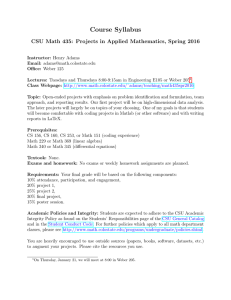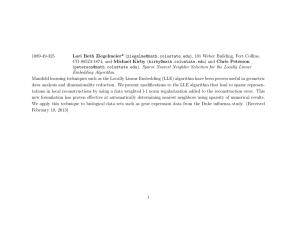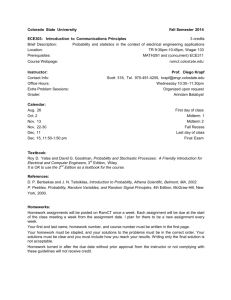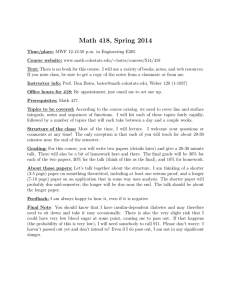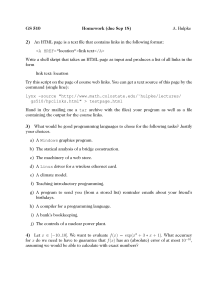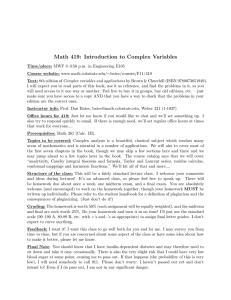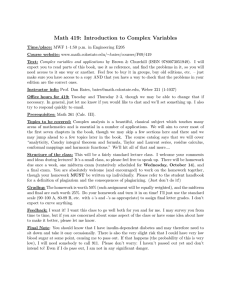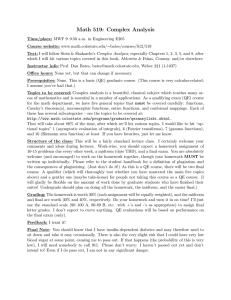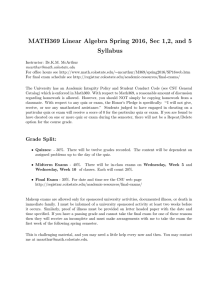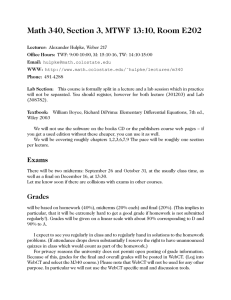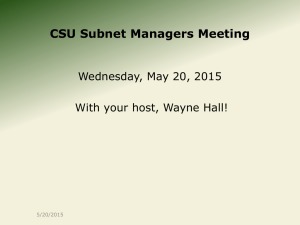GS 510, MW 14:00, Weber 202
advertisement
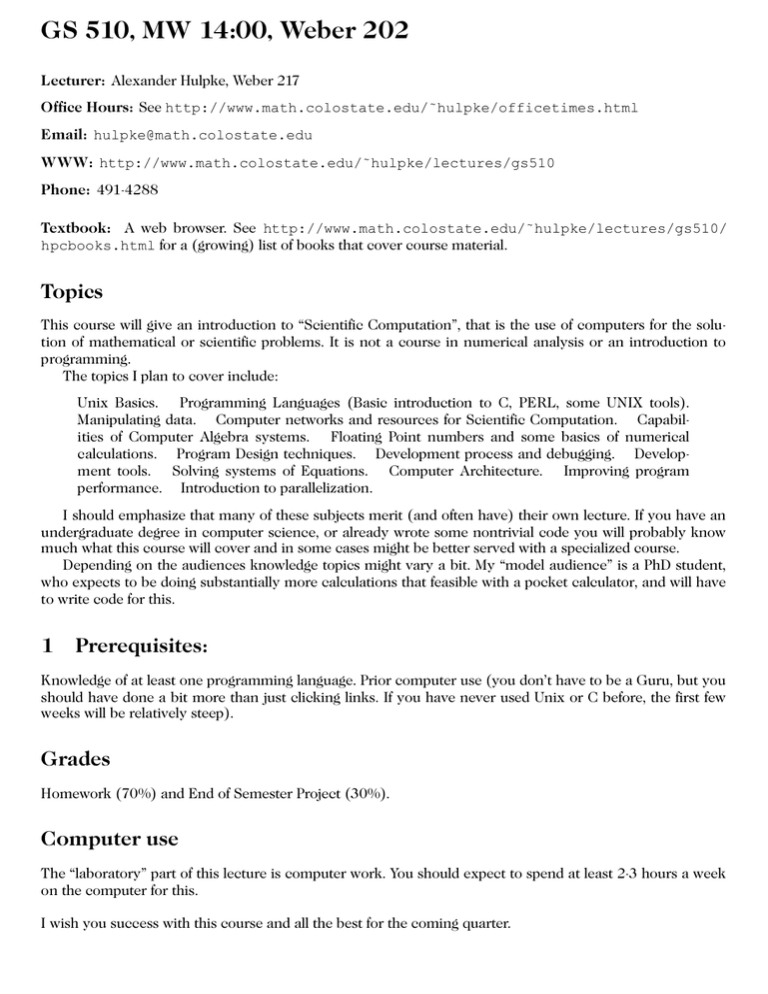
GS 510, MW 14:00, Weber 202 Lecturer: Alexander Hulpke, Weber 217 Office Hours: See http://www.math.colostate.edu/˜hulpke/officetimes.html Email: hulpke@math.colostate.edu WWW: http://www.math.colostate.edu/˜hulpke/lectures/gs510 Phone: 491-4288 Textbook: A web browser. See http://www.math.colostate.edu/˜hulpke/lectures/gs510/ hpcbooks.html for a (growing) list of books that cover course material. Topics This course will give an introduction to “Scientific Computation”, that is the use of computers for the solution of mathematical or scientific problems. It is not a course in numerical analysis or an introduction to programming. The topics I plan to cover include: Unix Basics. Programming Languages (Basic introduction to C, PERL, some UNIX tools). Manipulating data. Computer networks and resources for Scientific Computation. Capabilities of Computer Algebra systems. Floating Point numbers and some basics of numerical calculations. Program Design techniques. Development process and debugging. Development tools. Solving systems of Equations. Computer Architecture. Improving program performance. Introduction to parallelization. I should emphasize that many of these subjects merit (and often have) their own lecture. If you have an undergraduate degree in computer science, or already wrote some nontrivial code you will probably know much what this course will cover and in some cases might be better served with a specialized course. Depending on the audiences knowledge topics might vary a bit. My “model audience” is a PhD student, who expects to be doing substantially more calculations that feasible with a pocket calculator, and will have to write code for this. 1 Prerequisites: Knowledge of at least one programming language. Prior computer use (you don’t have to be a Guru, but you should have done a bit more than just clicking links. If you have never used Unix or C before, the first few weeks will be relatively steep). Grades Homework (70%) and End of Semester Project (30%). Computer use The “laboratory” part of this lecture is computer work. You should expect to spend at least 2-3 hours a week on the computer for this. I wish you success with this course and all the best for the coming quarter.
